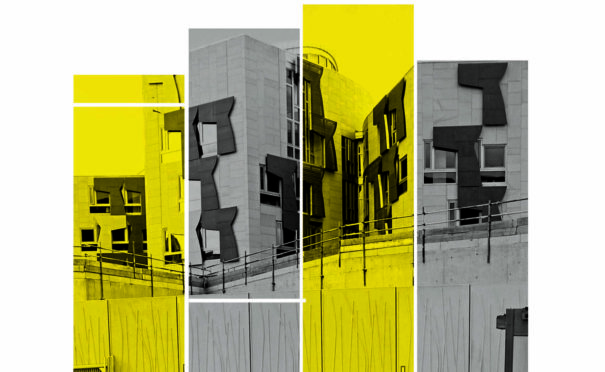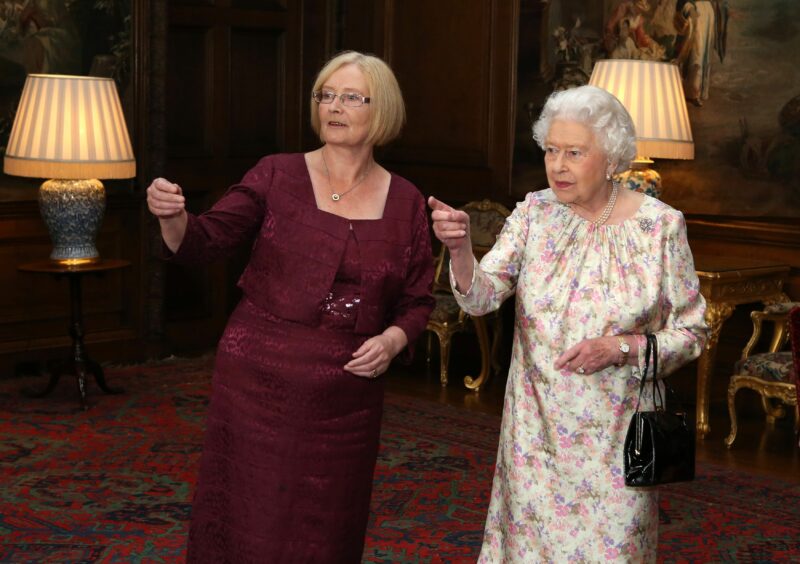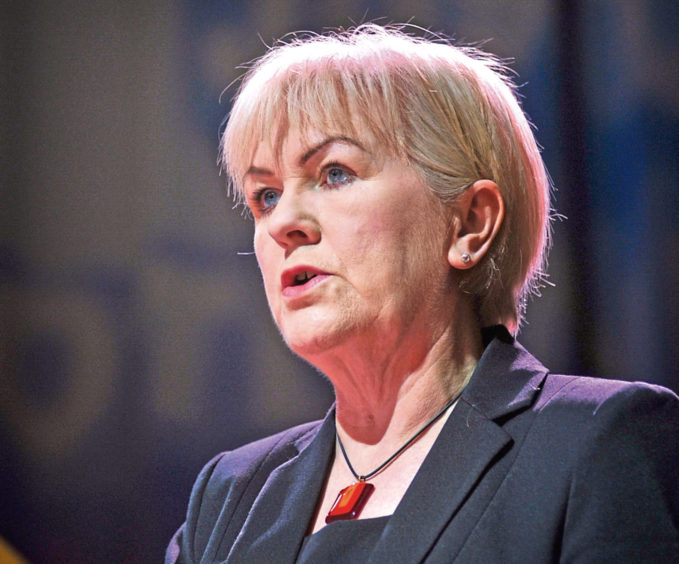
It will be soon be 25 years since the legislation leading to the creation of the Scottish Parliament was passed.
Devolution has been hailed for bringing government closer to the lives of most Scots but, while the Scottish Parliament has the overwhelming support of most living north of the border, a quarter of a century since the passing of the Scotland Act, many are asking if it is time to lift the bonnet and tune the engine.
Questions of accountability and scrutiny are again in sharp focus as opposition MSPs scrutinise the value of sessions like First Minister’s Questions which, they say, generate more heat than light and accuse parliamentary committees, intended to challenge and test draft legislation, of being in thrall to SNP ministers and failing to offer rigorous investigation or expert influence.
Here, in the second part of our analysis of Holyrood’s successes and failures, we speak to four experts about what the Scottish Parliament is doing well and what it could be doing better.
Tricia Marwick
Former presiding officer
Almost seven years since standing down from Holyrood, the experienced SNP politician believes Holyrood would benefit from list MSPs serving a maximum of two terms in office.
Of Holyrood’s 129 MSPs, 73 are elected from constituencies and 56 from eight regional lists.
Marwick was elected as a regional list MSP in 1999 and again in 2003, before winning the Central Fife constituency seat in 2007. She said: “The parliament needs to reinvigorate itself every now and again. We need to keep renewing the parliament or else it gets stale and I think two terms is enough for a list MSP.
“If you are a list MSP, you are elected by the votes for your party. I believe that if you haven’t won your constituency in three elections then you should step aside.
“In 2007, I did not stand as a list candidate. It was the constituency or nothing. If I didn’t win, I had to step aside and let someone else try to win the seat.”
Marwick, who served as presiding officer of the Scottish Parliament between 2011 and 2016, also suggested Holyrood would benefit from elected committee conveners and separate committees to look at proposed legislation and report on issues. She said: “The biggest mistake we could make, which other parliaments have made, would be to say, ‘This is how it is, it’s never going to change, it’s too difficult to change’.
“We need to say, ‘Actually, there are some things we need to look at and things we need to do better’.
“There are a lot of good things about the Scottish Parliament, particularly the way legislation is taken through. But I do think there would be much greater scrutiny and focus if we had the select committees and general committees they have at Westminster.”
Lucy Hunter Blackburn
Policy analyst
Having worked on the legislation establishing the Scottish Parliament, the former senior civil servant believes it has increasingly become more like a private club since its creation and believes Holyrood reform is needed to make it more accessible to the public.
Hunter Blackburn said: “I think that it is a very closed institution. Over time it has become more inward looking and almost like a private club.
“As someone who has worked there in the past, I should feel fairly at home there compared to many ordinary Scottish citizens. But yet even to me, it feels like a very closed environment.
“I would do quite basic things like open up more of the building so that the beautiful garden lobby, which is spacious and has a cafe, has public access.”
She also suggested a review of who gives evidence to committees and who holds parliamentary receptions at Holyrood.
She said: “It’s very apparent that it’s the same people who turn up over and over again to give evidence. Someone should also look at who gets to hold receptions and meetings in the parliament.
“There is a lobbying register already but we need an overall picture of which organisations get what kind of access to MSPs. We need a really solid audit.”
Hunter Blackburn also said MSPs should become more accessible to members of the public.
“There are too many MSPs who are quite hard to pin down in person,” she said. “Some are very good at holding surgeries to see their constituents but there are others who aren’t.
“There was one MSP in the last parliament who held no surgeries at all. If you wanted to see them, you had to email their parliamentary email address and see them at Holyrood. How on earth do you stay connected to the wider population when you insulate yourself in the Holyrood bunker?”
In need of repair? 25 years on, does the Scottish Parliament need a little work?
Mandy Rhodes
Editor of Holyrood magazine
Few people know the Scottish Parliament better than the editor of its in-house magazine, which last month celebrated its 500th edition.
Rhodes, who has been Holyrood editor for 18 years, believes the current parliamentary session has been affected by the loss of experienced politicians following the 2021 Holyrood election and the pandemic.
She said: “I don’t think the parliament as an institution is going wrong. I think what’s happened is there has been such a huge change since the last election in 2021, where we saw a large number of very experienced parliamentarians leave and a fresh intake of very inexperienced people coming in.
“But also with the pandemic, it meant that those people didn’t get the opportunity like you normally would to have the first few weeks of meeting and learning from each other.
“There is a huge absence of institutional memory and I think that is really telling at the moment.
“I welcome fresh political blood coming into a parliament. That should be invigorating and inspiring and really help us think more about our politics and why we’re doing things. But instead it seems to have stagnated things.”
Rhodes is a member of a cross-party group, chaired by constitutional expert Professor James Mitchell, of former MSPs and experts who are considering how Holyrood can be reformed.
Rhodes added: “For the 500th edition of Holyrood, I spoke to politicians elected to the first parliament in 1999, and back then backbenches would come up with innovative thoughts that weren’t necessarily the party line.
“For instance, SNP MSP Stewart Maxwell came up with a private member’s bill to ban smoking in public places, which Labour took up and ran with.
“You just don’t see a lot of that innovative thinking now. When you look at the parliamentary motions put down, they’re all very celebratory, congratulating the SNP and patting the first minister on the back. I think that just starts to get a bit embarrassing.”
The SNP has dominated the Scottish Parliament since 2007, winning four consecutive Holyrood elections.
Rhodes said: “That’s a reflection of democracy, so it’s hard to start criticising it. But there is inevitably a problem when you have one party in power for so long. What you get from that is less dissention, less critical analysis and committees that are towing a party line.
“I think that was really evident with the equalities committee as the Gender Recognition Reform legislation went through.”
Johann Lamont
Former Scottish Labour leader
The politician, who spent more than two decades at Holyrood, believes draft legislation would be improved if committee members were freed from obligations to their parties.
Before retiring from frontline politics in 2021, Lamont served as a government minister, party leader and on numerous committees, including the public petition committee as convener and education committee as deputy convener.
She said: “You can’t have whipping in the committee system if it is a revising chamber. Otherwise MSPs are not doing their job and are only replicating the political balance in the chamber.
“Committees can take on a life of their own. In my experience, people take pride in what they are doing and work together. They have a project, whether it’s a bill or an inquiry, and cooperate and make sure all the questions are asked.”
However, Lamont fears this has been “fractured” by the controversial Gender Recognition Reform bill.
She said: “The equalities committee should have decided the legislation was so contentious that members had to work collaboratively and cooperatively rather than just having a continuation of the argument.
“Maybe everybody should take a step back and ask what is the fundamental principles of being a committee member, which is you owe a responsibility as a lawmaker to the job of scrutiny.
“It’s not about, am I going to become a government minister, will I get re-elected or where will I be on the regional list if I support this?”
Lamont said that committees should be a test of the strength of legislation. She said: “It doesn’t mean you have to abandon it, but if it’s strong it will survive that process. The fundamental role of committees is to be a safety net.
“Otherwise, all that would be left would be for the parties at the beginning of the parliamentary session to throw their manifestos on the table in the chamber, vote on what the manifestos say and then go home for four or five years.”

Enjoy the convenience of having The Sunday Post delivered as a digital ePaper straight to your smartphone, tablet or computer.
Subscribe for only £5.49 a month and enjoy all the benefits of the printed paper as a digital replica.
Subscribe © Andrew Milligan/PA Wire
© Andrew Milligan/PA Wire © Louis Flood / STUC
© Louis Flood / STUC